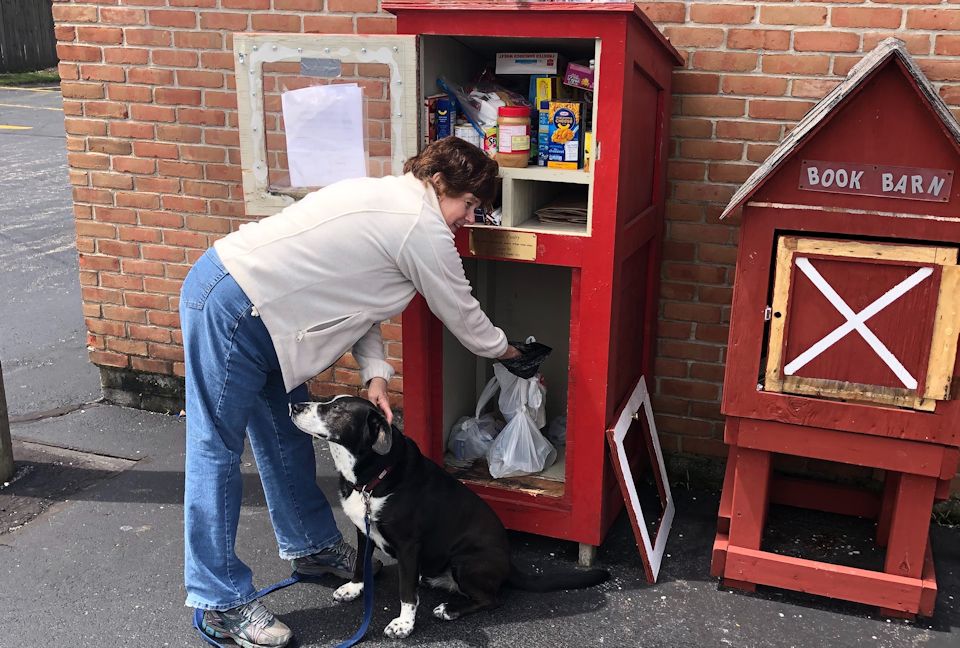The Michigan Conference Leadership Council provided funding to the Board of Global Ministries. Those dollars enabled grants to churches and ministries to provide resources for those at risk from COVID-19.
KAY DEMOSS
Senior Content Editor
LANSING, MI — Associate Director for Mission & Ministry Paul Perez announces that the Conference Board of Global Ministries (CBGM) has approved and disbursed $500 mini-grants across the state. The guidelines stated, “Because the impact of COVID-19 will be felt for some time to come, there are opportunities for United Methodist local churches, campus ministries, and UM-related non-profits to fill gaps in community assistance as well as show the love of Christ.”
The grants will be used to support “immediate COVID-19 prevention and relief activities to populations most impacted by the current pandemic.” These activities focus on health, food insecurity, water, hygiene, and economic stability. The Conference awarded applicants $500 after they had secured $500 of matching funds.
This is the first in a series of reports of how churches and ministries are making a difference with the help of the mini-grants.
Pathfinders Muskegon
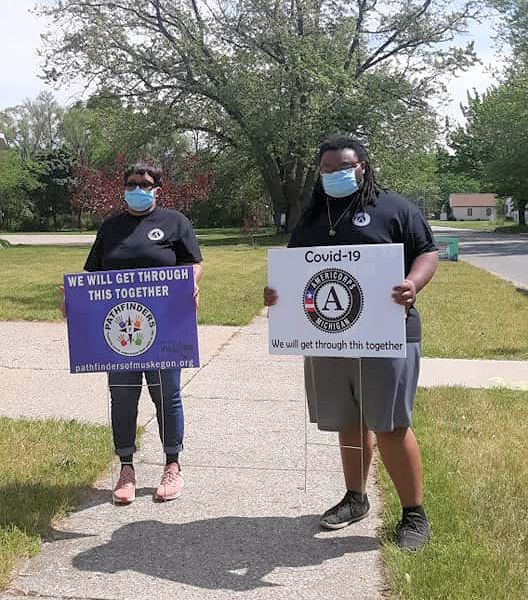
Shauna Hunter, Executive Director of Pathfinders of Muskegon, shared details of their pandemic initiative #IamTheVillage, in a seven-page newsletter. Pathfinders Muskegon is an EngageMI ministry partner operating from Temple United Methodist Church in Muskegon Heights.
Pathfinders responded to a call by public officials, including Muskegon County Public Health Officer Kathy Moore. Moore said, “COVID-19 is in Muskegon County and is hurting our friends, neighbors, and those we love.” She added, “By working together, sharing a consistent message, and following some very basic safety precautions, we can save lives.”
Working with Americorps Urban, Pathfinders stepped up to help stop the spread of the virus in their community. Their efforts included education, washing clothes for those unable to get out, and sharing with the local Women’s and Men’s shelters.
Hunter notes, “With the disparities in the urban communities, we decided to educate our community by establishing presence in places that had a lot of population and foot traffic. We went to businesses and homes to share with people who were uninformed or ill-informed of what coronavirus was and how it was affecting black people at alarming rates.”
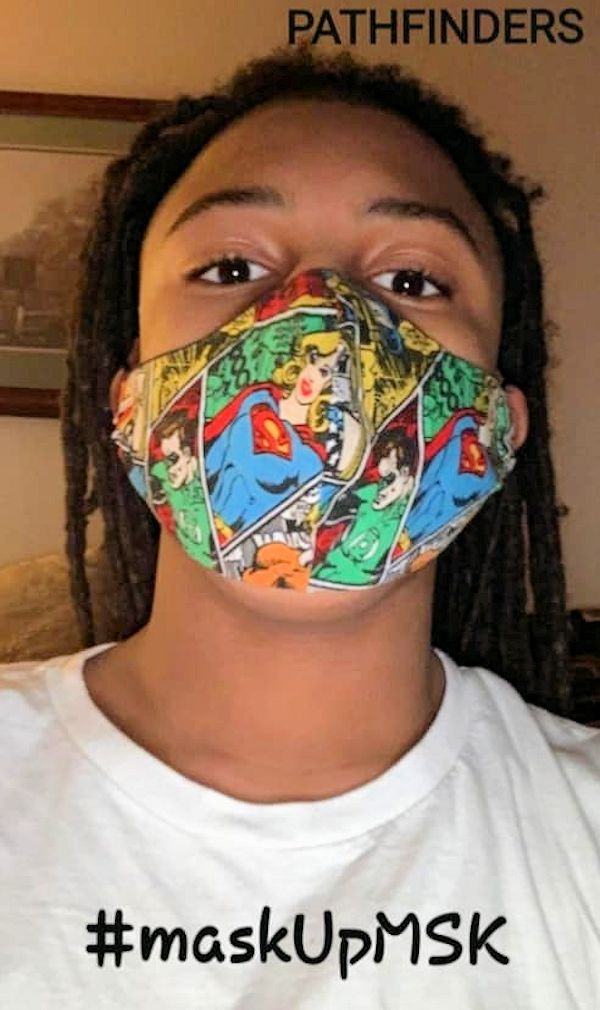
Hunter stated, “We put a total of 24 yard signs in the neighborhood to let our neighbors know that this too shall pass.” Public health data was provided on flyers and a video shared on social media, “to spread the word that this virus was real and that we had the ability to stop the spread.”
Hunter reports, “A gentleman said to us, ‘Oh, I don’t believe that stuff is real.” Another person asked us if we thought all the talk about the virus was true. This was a sure sign to our staff that informing the community was the right thing to do.”
“Mask up Muskegon!” was a Pathfinder effort that made and donated masks to Health West, a mental health service in the city. Their Tagline, “We will get through this together!” Hunter observes, “Pathfinders wanted to let the community know that putting on a mask was cool. Not only that, putting on a mask will help save lives.”
Pathfinders also promoted the use of Health West services. “Pathfinders is fully aware of the trauma that has stricken our communities. People are stressed and overwhelmed with tireless emotions. From Covid19 to all types of barriers and stressful circumstances, we suggest a resource in HealthWest,” the newsletter stated.
Pathfinders served 20 families each week with COVID supplies: personal hygiene products, toilet paper, laundry detergent, hand sanitizer, and masks. The bags of supplies also included COVID-19 information and books.
Read the full report in the COVID-19 Response edition of Pathfinders News.
NCCP in West Branch
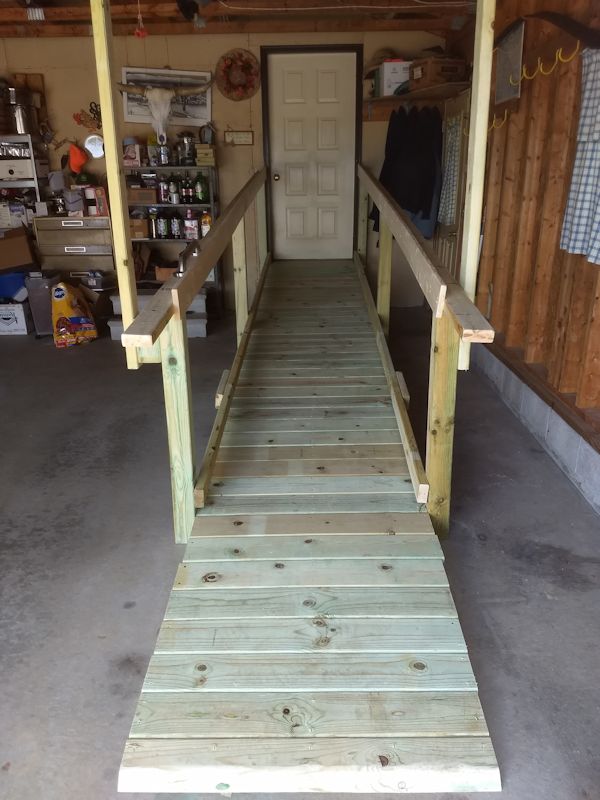
David Gentry is the Parish Council chair at West Branch United Methodist Church and president of NCCP. He reports that North Country Cooperative Parish (NCCP) was organized in 2016 to help low-income families and individuals with necessary home repairs. “We are not a home improvement company,” Gentry notes. “We fix the parts of homes that need repair immediately. Homes that have leaks or broken windows and doors or have steps when that cannot be navigated any longer. Homes that have safety issues or security problems.” In addition, NCCP helps people with transportation to and from urgent appointments.
NCCP is funded by grants and donations from member churches, local businesses, and contributions from those involved in the projects. The COVID-19 grant funded a ramp.
Gentry reports that the work of NCCP is done by local helping hands and volunteers who come from other parts of the state to assist with work projects. NCCP also welcomes the help of homeowners when they are able and wanting to work, as well.
The stated purpose of NCCP: We seek to walk alongside brothers and sisters in physical, emotional, and spiritual fulfillment in following the example, the teachings, and our call to action as Christian disciples! After all, are we not all followers of a carpenter’s son? That calling is all the more urgent during the coronavirus pandemic.
Pantry in Port Huron
Bruce Hurd, a member of Port Huron First United Methodist Church, tells the story of the congregation’s Little Red Food Pantry.
“Two years ago, Women’s Life Insurance Company Chapter 803 asked Port Huron First UMC if we would host a Little Red Food Pantry in our parking lot. Of course, we said yes. The pantry is designed as an anonymous source of food for people who are having trouble making ends meet,” Hurd explains. A sign encourages people to take just what they need for the day. Hurd describes the neighborhood as “a mix of transient renters, senior housing, and low-income families. CVS is the main store in the area, and taking a shortcut through our parking lot is the quickest way for most of the neighborhood to get there.”
There was accessibility but no consistent procedure or policy in place to fill the pantry in the first year it was available. So, it received little use. “Then came Covid-19,” Hurd says, “and we realized that there was a huge need in our community as people lost jobs and benefits. Our neighbors needed help.”
In March of 2019, organized food collections got underway. The April 1 effort gathered enough food to fill the pantry for two months. Members and neighbors donated generously again in May and July. “Donations totaling $610 enabled the mission committee to purchase additional food. A regular schedule to fill the pantry was developed,” Hurd reports.
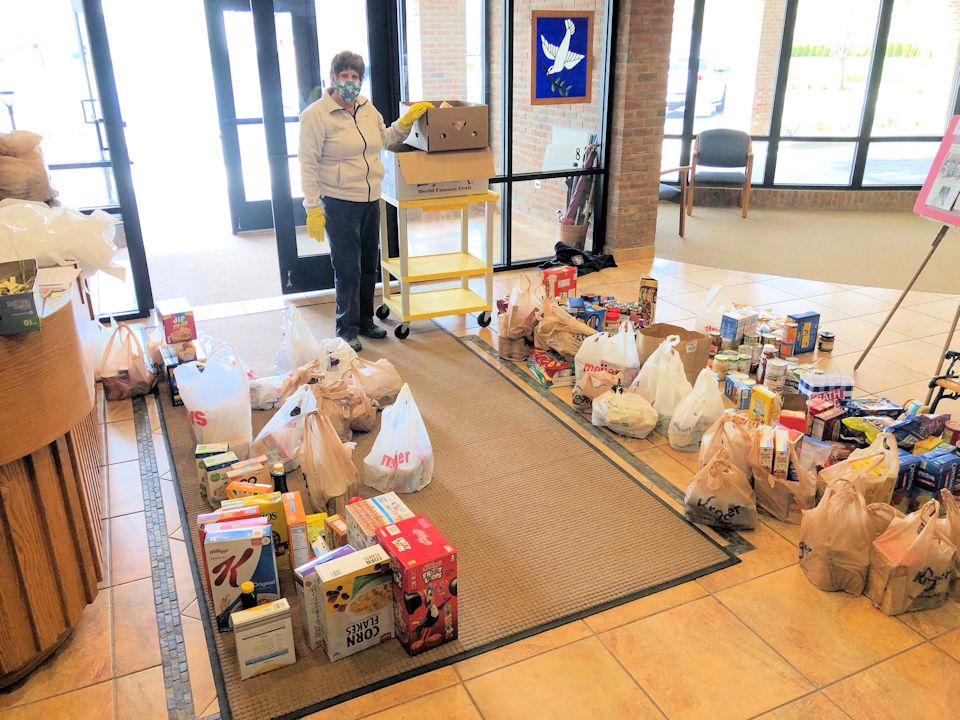
The pantry is well used, according to Hurd. “Although the intention is that people using the pantry are anonymous, many have thanked us when we fill the box, and they share their stories. One was laid off, and unemployment had not yet arrived. Another needed food for that day as his check was coming the next day. A woman needed food for herself and her elderly parents until social security arrived. Several told us that due to rising grocery prices, their income no longer covers what it used to.”
The $500 grant from the Michigan Conference is helping to keep groceries coming for the Little Red Pantry as weeks of health crisis stretch on. Bruce Hurd thanks the Conference Board of Global Ministries for this assistance. He adds, “Several neighbors have stopped to tell us that they have put food into the box and feel blessed that they can share what they have with others.”
The work of the Conference Board of Global Ministries is funded by the faithful payment of Ministry Shares and extra mile giving to EngageMI, the mission engagement program of The Michigan Conference. These COVID mini-grants were made possible by a grant from the Conference Leadership Council.
Last Updated on October 27, 2023

